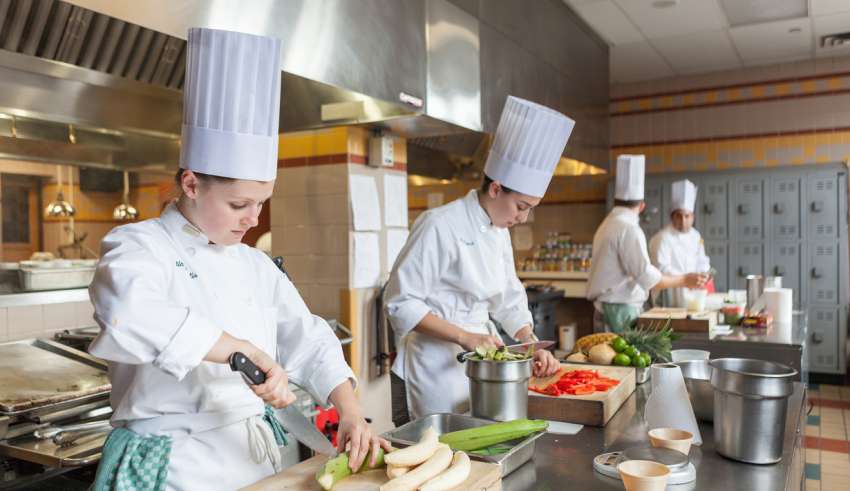

Getting a cooking school diploma can help you advance in your profession. It’s an essential part of developing a foundation of skills and practices that you’ll be able to use for years in your professional career. Opting for comprehensive culinary training will provide you with a broad understanding of a variety of cuisines, ingredients, theories, and techniques that only working at a restaurant will not be able to provide.
What To Look For At A Culinary University?
The instructional methods used by culinary schools differ from one another. Various culinary schools cater to the demands of multiple types of pupils. You can choose the ideal program with some research. Consider including the following on your school checklist:
- Check out the classes in action when you visit the cooking school.
- Consult with students and professors.
- Examine the course structure and curricula.
- Check to see if the culinary school has proper acquisition.
- Examine class timetables for flexibility.
- Examine the possibilities for an externship.
Check out cooking courses in Bangalore to know more.
Distinctions Between Programs
Culinary Institute:
For individuals serious about the culinary profession, culinary colleges provide the best instruction available. They usually offer degree, diploma, or certificate programs that require two months to four years of coursework.
Cooking School:
Cooking schools are miniature versions of cooking institutes that offer specialized instruction for cooks. Typically, they only provide diploma or certification programs. The program duration varies from 2 – 3 months to four years.
Cooking Classes:
Cooking classes do not provide certifications or diplomas. However, they are the perfect way for committed cooks to learn more about the craft.
Tuition for Cooking School
If you go to a public culinary university, consider that out-of-state tuition is much higher than in-state tuition. Remember to factor in the program fees, uniforms, textbooks, materials, housing, and transportation expenditures when determining costs for each cooking school. A culinary education is expensive. Thus, look into the institution’s financial aid and scholarship opportunities available. Check out Bangalore culinary academy fees structure.
Cooking School Program’s Average Length
Typical cooking school programs involve 300 to 400 hours of classroom instruction and 200 to 300 hours of internship or externship. Here is a breakdown of the individual programs:
- One month to two years for a certificate or diploma
- An associate’s degree takes nine months to two years to complete.
- Bachelor’s degree takes four years to complete.
- Two years for a master’s degree
- Six years for a doctorate
On-the-Job Training vs Formal Education
On-the-job training is undoubtedly an alternative, but it is a more time-consuming path. On this road, you will only learn one specific type of cooking depending on the cuisine served by the restaurant. Professional kitchens are for cooking, not for teaching. You’ll also start at a lesser pay scale than cooking school grads because you’ll need additional training if you don’t have a formal education.


